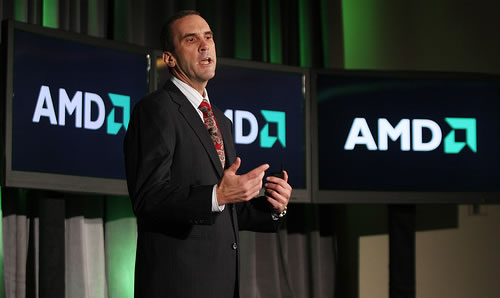The departure of AMD's chief executive came as quite a surprise for many, as Meyer abruptly announced the decision on Monday with no detailed explanation from either him or the company. Even more so as AMD started to show a slow but steady turnaround, with its graphics processors business doing well and its first Fusion APU products debuting this month. But apparently the split between AMD and his CEO had been simmering for some time.
Several news outfits are reporting that Meyer's hesitation, particularly towards tablets, may have cost him the job, and that the company's board pressured him into resignation because they didn't feel like Meyer was taking them down the road they wanted to be on... the road towards tablets and smartphones.

Meyer had made his position very clear last year, when he openly said that the tablet market was not a priority because it wasn't big enough to justify the R&D spending. His point was arguably a rational one but it's that lack of vision that has them running behind rivals for a piece of the market later on. The company practically conceded the netbook market to Intel by offering no competing chip, and in 2008-2009 when it appeared well situated to make a foray into smartphones, it sold its Xilleon technology to BroadCom and Imageon to cell phone chip giant Qualcomm.
Meyer deserves some credit for taking the reigns in difficult times and stabilizing the company, something which the board themselves recognized in their statement. AMD might even finally gain some traction just above the netbook segment now that several big-name manufacturers have announced their plans to support the Brazos platform, but it seems like his vision just wasn't aligned with the company's board of directors.